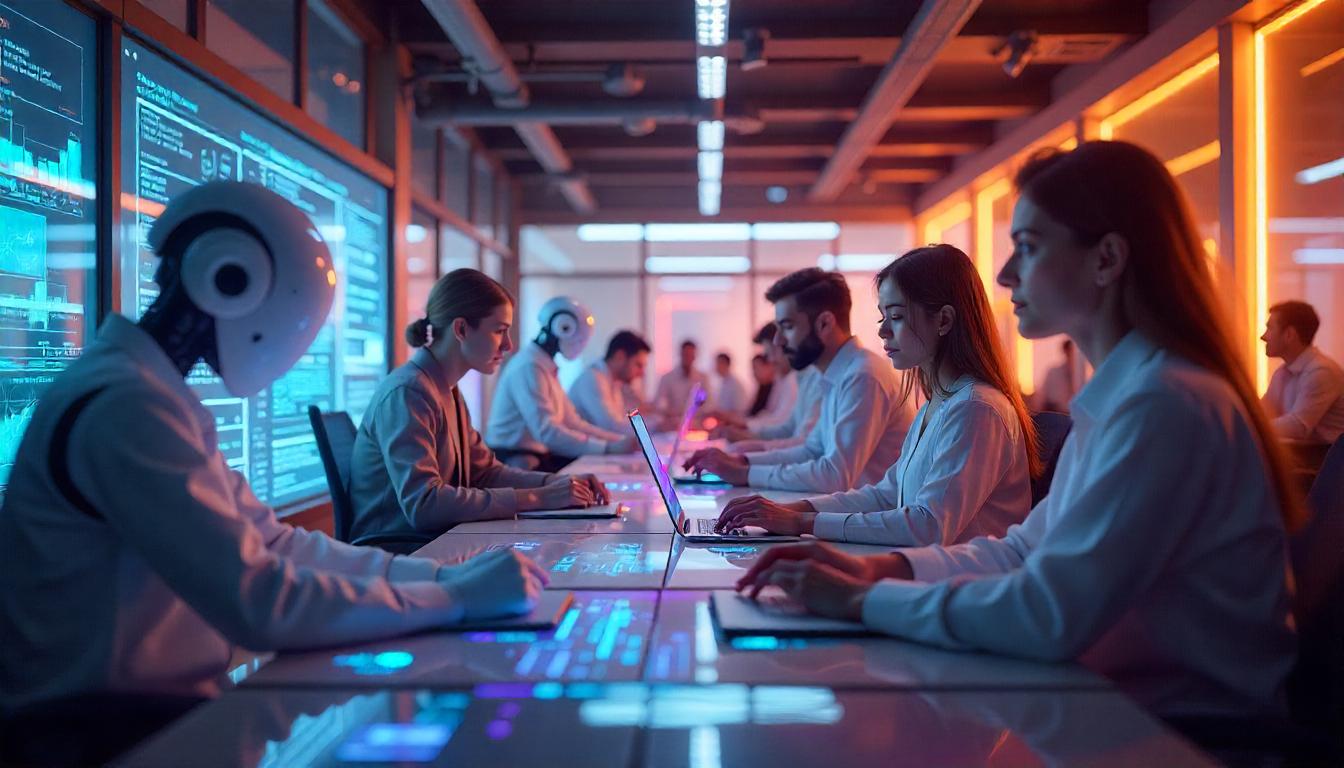The Rise of AI in the Workplace
Artificial Intelligence is no longer a distant concept—it’s here, reshaping how we work in 2025. From automating repetitive tasks to enhancing decision-making, AI is changing industries like healthcare, finance, manufacturing, and more. Businesses are adopting AI to boost efficiency, cut costs, and stay competitive. This shift is creating a new landscape for jobs, where some roles fade away, and others emerge stronger than ever.
Industries Transformed by AI
AI’s impact is clear across sectors. In healthcare, it’s helping doctors diagnose diseases faster with data analysis. In finance, AI predicts market trends and manages risks. Manufacturing uses AI-powered robots for precision and speed. Even creative fields like marketing are leaning on AI for personalized campaigns. As AI integrates deeper, industries are evolving, demanding workers who can adapt to tech-driven changes and contribute to innovation.
Jobs of the Future: What’s Changing?
By 2025, traditional jobs like data entry or basic customer service are shrinking as AI takes over routine tasks. But this isn’t just about job loss—it’s about transformation. New roles are popping up, like AI trainers, ethics specialists, and automation managers. Jobs requiring human creativity, emotional intelligence, and strategic thinking are growing. The future belongs to those who can work alongside AI, not just compete with it.
Skills to Thrive in an AI-Driven Economy
To succeed in this AI-powered world, certain skills are essential. Technical skills like coding, data analysis, and machine learning are in high demand. But soft skills matter too—critical thinking, adaptability, and collaboration set humans apart from machines. Lifelong learning is key, as technology keeps evolving. Workers who upskill regularly and embrace change will lead the charge in the job market of 2025 and beyond.
Challenges and Opportunities Ahead
AI brings both promise and hurdles. While it creates high-value jobs, it also risks widening inequality if access to training lags. Companies and governments must invest in education to prepare workers for this shift. On the flip side, AI offers opportunities for remote work, flexible roles, and global collaboration. The future of work isn’t fixed—it’s a chance to build a smarter, more inclusive economy if we act now.
Conclusion: Preparing for 2025 and Beyond
AI is redefining work in 2025, blending challenges with exciting possibilities. By understanding its impact and building the right skills, individuals and businesses can thrive. The future of work isn’t about replacing humans—it’s about enhancing what we do best. Start preparing today, and you’ll be ready for the AI-driven economy of tomorrow.
